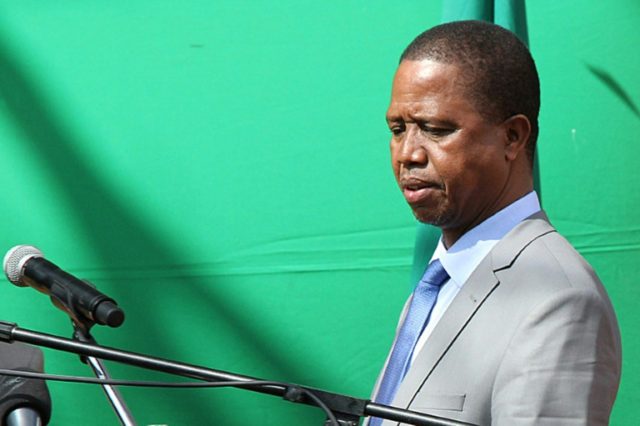The government of Zambia expelled Cuba’s ambassador in the country this week over attending an opposition presidential candidate’s rally and declaring his support for changing the government, a move Zambian officials declared “unbecoming of a diplomat.”
The communist Castro regime has spent decades attempting to influence politics in Africa, most famously deploying thousands of troops to Angola in support of communist revolutionaries there in the ’70s and ’80s.
Cuban Ambassador Nelson Pages Vilas attended a rally in support of newspaper magnate Fred M’membe’s 2021 run for president of Zambia on Saturday and spoke in support of his socialist agenda. M’membe was the proprietor of the Zambia Post, which has since shut down, and launched the Zambian Socialist Party this weekend. President Edgar Lungu is independently facing an impeachment threat from another opposition party, the United Party for National Development (UPND), according to Reuters.
Amos Chanda confirmed that the government had given Vilas seven days to leave the country following his presence at the Socialist Party rally for “behavior unbecoming of a diplomat,” namely endorsing a political party in a domestic election. He will not be allowed to engage in any official embassy business between the present time and when he departs the country. Diplomats typically abstain from openly meddling in the political affairs of their host nations, instead simply representing their country in matters related to their bilateral relationship.
Zambia’s Lusaka Times reported that Vilas extended “revolutionary greetings” to the newly-founded Socialist Party and wished them “all the best” in upcoming elections, leaving no doubt that the Cuban government hoped to see the current regime fall to socialists.
Minister of Foreign Affairs Joseph Malanji told reporters that Vilas admitted to “poor judgment” and “was remorseful.”
Some in the opposition have supported the decision. The head of the minority Economic and Equity Party (EEP), Chilufya Tayali, wrote in the Zambian Observer that Vilas “became partisan and therefore compromised his position as a diplomat who is not supposed to side with any political party in this Country [sic].” Tayali noted that the ruling party often has diplomats attending their events, none of whom have been expelled becuse they do not speak out in support of the party.
“The issue is really about openly pledging support, and not just attending,” he asserts.
M’membe, the Lusaka Times later reported, is using the expulsion to claim that his socialist policies are generating fear among those in the incumbent regime.
“Dr. M’membe said that the seemingly irrational behavior of President Lungu and his government over the launch of the Socialist Party is based on real fear,” the newspaper reported. “Dr. M’membe said that the fear of informed and political conscious Zambian masses, of a genuine revolutionary political formation with a credible leadership and that of international solidarity sympathetic to the plight of the people of Zambia.”
M’membe has long been an enemy of the ruling Patriotic Front party, coming into conflict with current president Lungu early on during the latter’s tenure. In June 2016, Lungu’s government shut down the Zambia Post due to delinquent tax payments, alleging that the newspaper corporation owed the government an estimated $6 million in back taxes. Zambia Post employees pointed towards their critical coverage of the Lungu administration, including reports revealing corrupt activities, as the real reason for being shut down, noting that the debt cited was “in dispute.” The shutdown occurred shortly before Lungu won a disputed election to stay in office, one his opponents are attempting to impeach him over.
Later that month, M’membe announced that his newspaper would keep printing, anyway.
“The order does not stop us from coming out. They have seized our printing facilities, they have seized our editorial offices and they have even garnished our bank accounts. But there is no law that stops us from publishing. … We have our own personal computers, there are many printing presses in the region where we can print,” M’mbembe said at the time.
The newspaper could not afford to keep printing much longer, however, and as of January 2018, the corporation’s liquidators are still struggling to pay off the tax debt.
The Cuban regime, in power since 1959, has long attempted to influence African politics. A 1987 estimate found that 10,000 Cuban nationals died in Angola between 1976 and 1987, fighting for the communists against Western-backed troops. Ernesto “Che” Guevara, one of the Cuban Revolution’s most prolific murderers, attempted to generate an artificial communist uprising in Congo after leaving the Caribbean island.

COMMENTS
Please let us know if you're having issues with commenting.